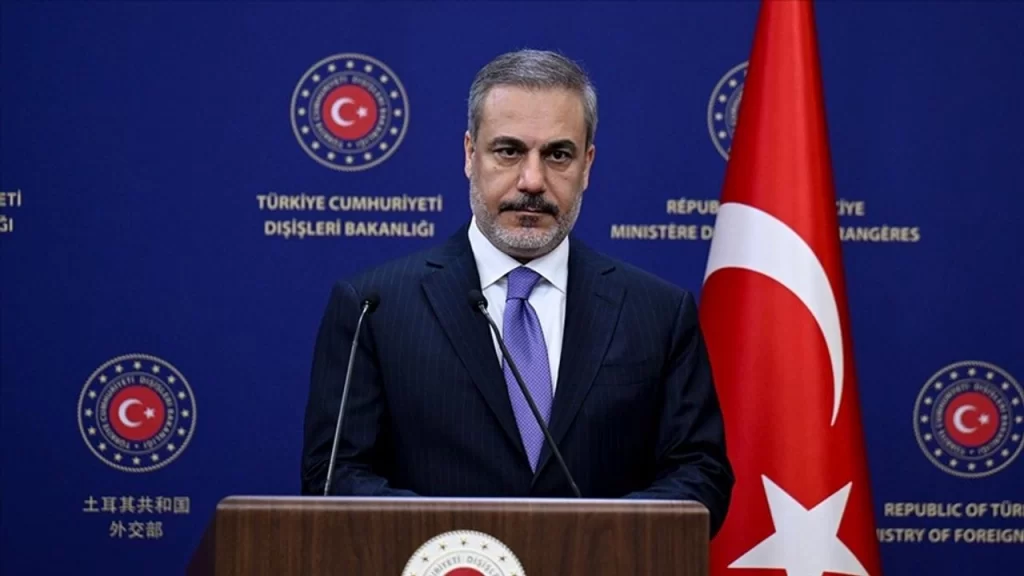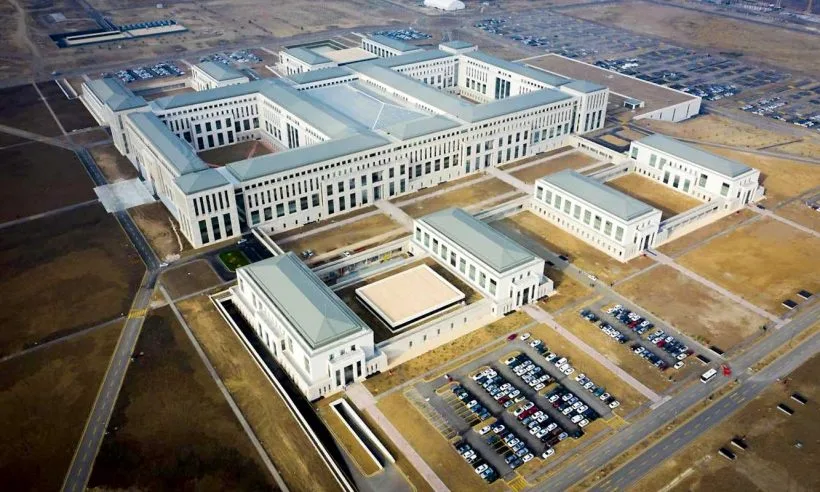Hakan Fidan’s Impact on Turkey’s Foreign Policy and Intelligence Strategies
A New Era for Turkish Intelligence?
Since Hakan Fidan assumed leadership as the head of Turkey’s National Intelligence Organization (MIT), the country’s approach to foreign policy and intelligence operations has seen a remarkable transformation. With Turkey’s geopolitical role becoming increasingly prominent, Fidan’s strategies have been instrumental in shaping a modern intelligence service that supports Turkey’s broader political, economic, and security objectives.
This article explores how the previous MIT Director and new Foreign Minister Hakan Fidan’s leadership transformed Turkey’s global intelligence operations and the broader implications of his role on Turkey’s foreign policy. We will also examine how his tenure marks a pivotal era in Turkish diplomacy, focusing on intelligence-driven policy execution.

Fidan’s Early Role: Building a Strategic Vision
Fidan’s background in the military and his extensive academic knowledge laid the foundation for his strategic vision. From the onset, his leadership at MIT was characterized by a focus on modernization and global integration. He understood the importance of real-time intelligence in shaping foreign policy decisions. His early initiatives, particularly in expanding Turkey’s human intelligence capabilities and investing in cutting-edge technology, redefined how Turkey engaged with global powers and responded to regional conflicts.
Recomended Article: Turkey’s Potential BRICS Membership: A New Strategic Alignment?
Turkey’s intelligence services under Fidan also began to emphasize multi-faceted approaches. This meant that intelligence gathering was not limited to military or security threats but included economic, political, and social dimensions that influence foreign policy.
Intelligence as a Tool of Diplomacy
Hakan Fidan’s leadership introduced a seamless integration of intelligence with Turkey’s diplomatic efforts. Turkey, under Fidan’s guidance, used intelligence not only for defensive purposes but also as a proactive tool in shaping its foreign policy. In regions like the Middle East, North Africa, and Eastern Europe, MIT’s intelligence played a key role in conflict resolution efforts, often positioning Turkey as a mediator.
This strategic shift was especially evident during Turkey’s involvement in the Syrian conflict, where intelligence-driven diplomacy allowed Turkey to play a more nuanced role, balancing both humanitarian concerns and national security interests. Furthermore, Fidan’s tenure saw Turkey asserting itself as a regional power capable of influencing major geopolitical outcomes, such as its involvement in Libya and the Nagorno-Karabakh conflict.

Expanding Global Influence: Intelligence Networks and Alliances
One of the most notable aspects of Hakan Fidan’s impact on Turkish intelligence operations was his emphasis on global partnerships. Fidan expanded Turkey’s intelligence networks, fostering alliances with regional powers, including Qatar, Azerbaijan, and Russia, while maintaining a pragmatic relationship with NATO and the West.
Under his leadership, MIT enhanced cooperation with several intelligence agencies, enabling Turkey to gather intelligence across a wide spectrum of global issues, from counter-terrorism efforts to economic espionage. This expansion allowed Turkey to influence international decision-making processes, aligning foreign intelligence strategies with the broader goals of its foreign policy.
Fidan’s strategy of using intelligence alliances also empowered Turkey to respond more effectively to external threats, including those posed by terrorist organizations and cyber warfare. His global outreach significantly elevated Turkey’s status as an indispensable player in international intelligence circles.
Addressing Regional and Global Threats
The leadership of Hakan Fidan came at a time when Turkey was facing numerous regional threats, including the rise of ISIS, the Syrian Civil War, and increasing Kurdish militancy. Through advanced surveillance techniques and human intelligence, Turkey was able to mitigate threats on its borders and beyond. MIT’s role in counter-terrorism efforts during Fidan’s tenure was particularly noteworthy, as it helped prevent potential attacks and dismantle key terrorist cells.
Recomended Article: Is Turkey Leading the Islamic World?
On a global scale, Fidan was instrumental in combating cyber threats and protecting Turkey’s digital infrastructure. His leadership enabled MIT to adopt a forward-thinking approach to cybersecurity, recognizing the increasing role of cyber intelligence in modern geopolitics.

Hakan Fidan’s Leadership: A Strategic Shift in Turkish Diplomacy
Hakan Fidan’s leadership transformed MIT into a more efficient and globally respected intelligence service, one that is capable of supporting Turkey’s ambitious foreign policy objectives. His diplomatic acumen, combined with intelligence expertise, has positioned Turkey as an influential actor in both regional and international politics.
As a result, Turkey’s intelligence operations are now a fundamental part of its diplomatic strategy, allowing the country to maintain a competitive edge in an increasingly complex geopolitical landscape. The question now is: Can Fidan’s approach continue to navigate the challenges ahead, such as balancing relations between the West and regional players, while addressing emerging global threats?
A New Era for Turkish Intelligence
Hakan Fidan’s tenure as the head of MIT marks a significant evolution in Turkey’s intelligence strategies and foreign policy. Through his leadership, Turkey has enhanced its global intelligence capabilities, forged new alliances, and demonstrated its ability to influence regional outcomes through intelligence-driven diplomacy.
His impact will likely continue to shape Turkey’s foreign relations for years to come, as the country continues to assert itself as a key player on the global stage. Fidan’s legacy is one of innovation, pragmatism, and a forward-looking approach to both intelligence and diplomacy, making him one of the most influential figures in modern Turkish history.
Recomended Article: A New Global Order Theory: What if Russians convert into Islam?















